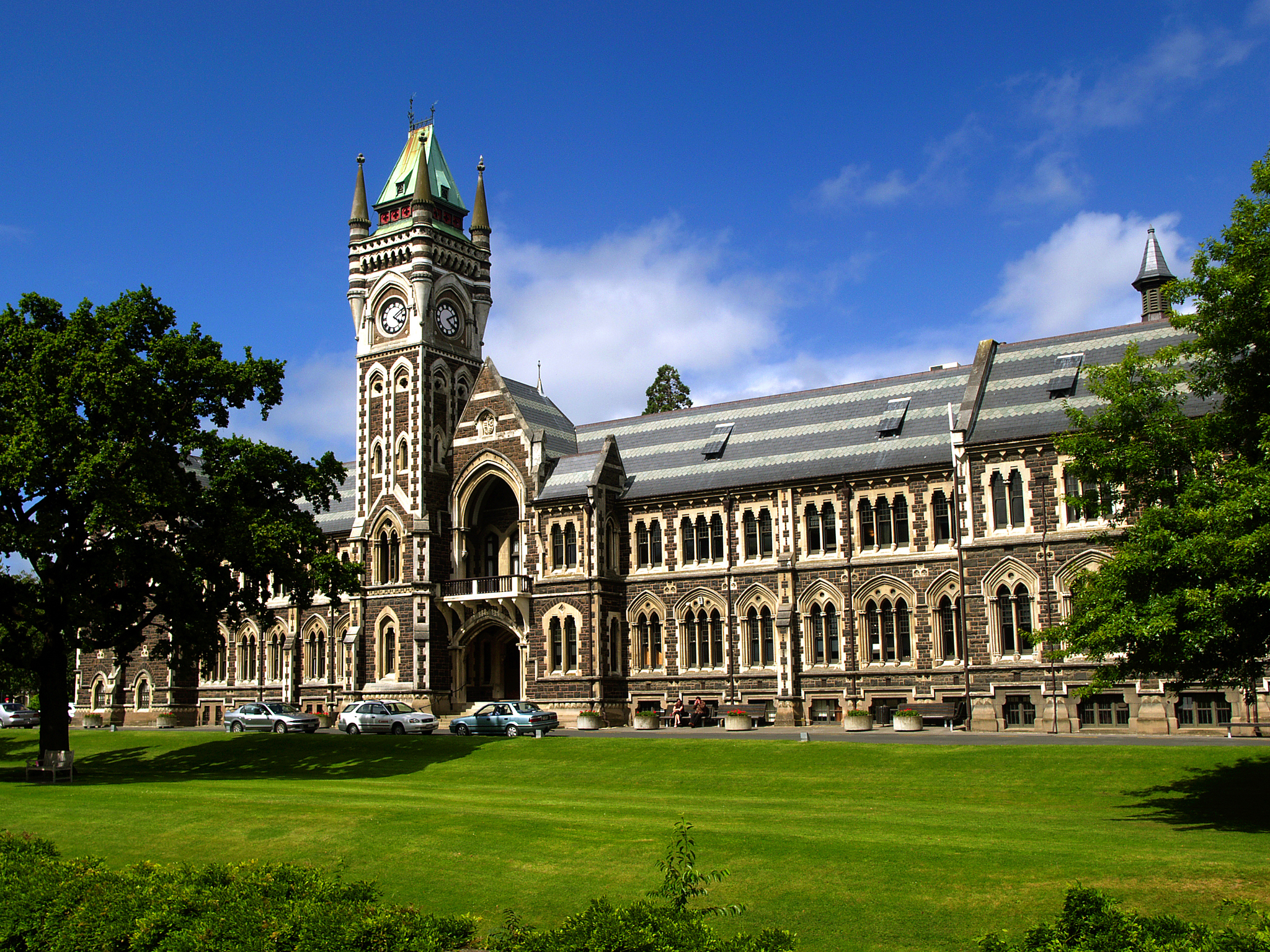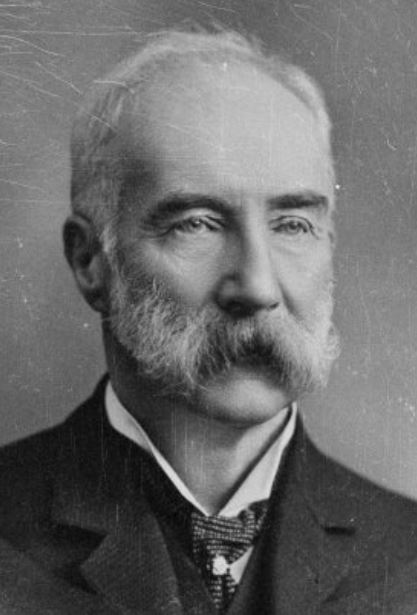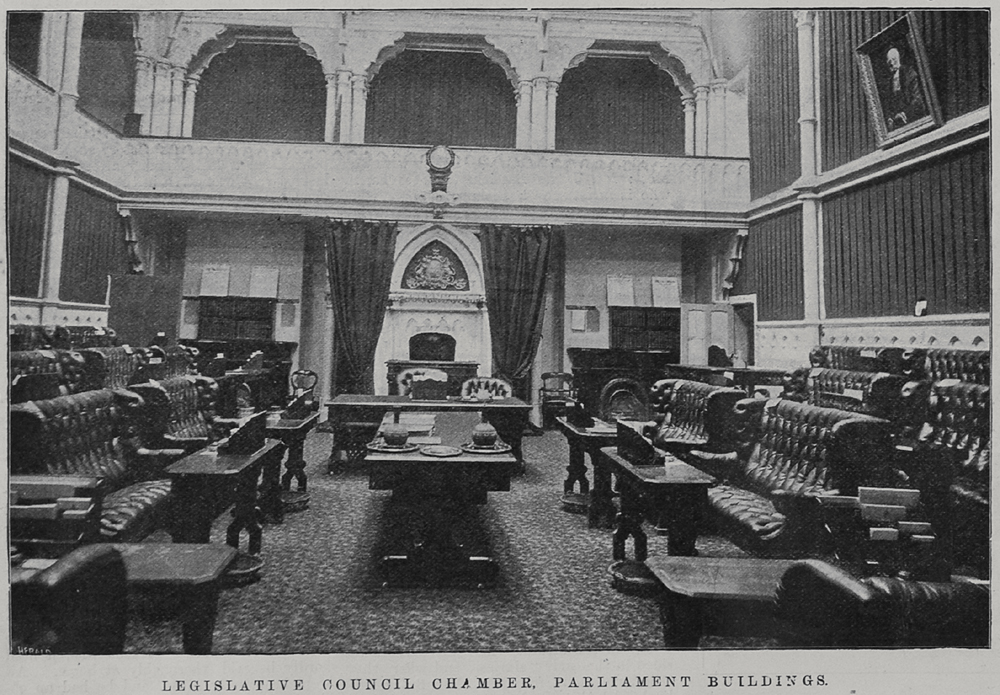|
Alfred Rowland Chetham-Strode
Alfred Rowland Chetham-Strode (10 May 1823 – 13 May 1890) was a New Zealand colonial public servant and politician. Life Chetham-Strode was born in Fareham in 1823, the son of Admiral Sir Edward Chetham-Strode,For more on Edward Chetham-Strode see: K.C.B., K.C.H., of Southill, Somersetshire. In 1841 he went to New Zealand, when he settled at Wellington. Entering the Government service in 1846, Chetham-Strode was appointed Inspector of Armed Constabulary, of which body he had command. He also received a war medal for services rendered during encounters with natives at Horokiwi, Porirua, Wanganui, and other places. In 1849 he was appointed Resident Magistrate in Otago, and occupied the position from 1860 to 1862 of Sub-Treasurer of Otago; was Curator of Intestate Estates for some six years, and Sheriff and Commissioner of Native Reserves. He was also the first Returning Officer and Registration Officer after the Constitution Act was granted to New Zealand. Elected by the trustee ... [...More Info...] [...Related Items...] OR: [Wikipedia] [Google] [Baidu] |
Fareham
Fareham ( ) is a market town at the north-west tip of Portsmouth Harbour, between the cities of Portsmouth and Southampton in south east Hampshire, England. It gives its name to the Borough of Fareham. It was historically an important manufacturer of bricks, used to build the Royal Albert Hall, and grower of strawberries and other seasonal fruits. Current employers include Fareham Shopping Centre, small-scale manufacturers, and the Defence Science and Technology Laboratory. History Archaeological excavations around the old High Street area and the church of St Peter & Paul on high ground over the Wallington Estuary have yielded evidence of settlement on the site contemporary with the Roman occupation. No extensive programme of investigation has been possible owing to the historic nature of the buildings in this area. The town has a documented history dating back to the Norman era, when a part of William's army marched up from Fareham Creek before continuing to the Saxon c ... [...More Info...] [...Related Items...] OR: [Wikipedia] [Google] [Baidu] |
University Of Otago
, image_name = University of Otago Registry Building2.jpg , image_size = , caption = University clock tower , motto = la, Sapere aude , mottoeng = Dare to be wise , established = 1869; 152 years ago , type = Public research collegiate university , endowment = NZD $279.9 million (31 December 2021) , budget = NZD $756.8 million (31 December 2020) , chancellor = Stephen Higgs , vice_chancellor = David Murdoch , administrative_staff = 2,246 (2019) , academic_staff = 1,744 (2019) , students = 21,240 (2019) , undergrad = 15,635 (2014) , postgrad = 4,378 (2014) , doctoral = 1,579 (2019) , other = , city = Dunedin , province = Otago , country = New Zealand (Māori: ''Ōtepoti, Ōtākou, Aotearoa'') , coor = , campus = Urban/University town 45 ha (111 acres) , colours = Dunedin Blue and Gold , free_label = Student Magazine , free = ''Critic'' , affiliations = MNU , website https://www.otago.ac.nz, logo = Logo of the University of Otago.svg The Unive ... [...More Info...] [...Related Items...] OR: [Wikipedia] [Google] [Baidu] |
Members Of The New Zealand Legislative Council
Member may refer to: * Military jury, referred to as "Members" in military jargon * Element (mathematics), an object that belongs to a mathematical set * In object-oriented programming, a member of a class ** Field (computer science), entries in a database ** Member variable, a variable that is associated with a specific object * Limb (anatomy), an appendage of the human or animal body ** Euphemism for penis * Structural component of a truss, connected by nodes * User (computing), a person making use of a computing service, especially on the Internet * Member (geology), a component of a geological formation * Member of parliament * The Members, a British punk rock band * Meronymy, a semantic relationship in linguistics * Church membership, belonging to a local Christian congregation, a Christian denomination and the universal Church * Member, a participant in a club or learned society A learned society (; also learned academy, scholarly society, or academic association) is an ... [...More Info...] [...Related Items...] OR: [Wikipedia] [Google] [Baidu] |
1890 Deaths
Year 189 ( CLXXXIX) was a common year starting on Wednesday (link will display the full calendar) of the Julian calendar. At the time, it was known as the Year of the Consulship of Silanus and Silanus (or, less frequently, year 942 ''Ab urbe condita''). The denomination 189 for this year has been used since the early medieval period, when the Anno Domini calendar era became the prevalent method in Europe for naming years. Events By place Roman Empire * Plague (possibly smallpox) kills as many as 2,000 people per day in Rome. Farmers are unable to harvest their crops, and food shortages bring riots in the city. China * Liu Bian succeeds Emperor Ling, as Chinese emperor of the Han Dynasty. * Dong Zhuo has Liu Bian deposed, and installs Emperor Xian as emperor. * Two thousand eunuchs in the palace are slaughtered in a violent purge in Luoyang, the capital of Han. By topic Arts and sciences * Galen publishes his ''"Treatise on the various temperaments"'' (aka '' ... [...More Info...] [...Related Items...] OR: [Wikipedia] [Google] [Baidu] |
1823 Births
Eighteen or 18 may refer to: * 18 (number), the natural number following 17 and preceding 19 * one of the years 18 BC, AD 18, 1918, 2018 Film, television and entertainment * ''18'' (film), a 1993 Taiwanese experimental film based on the short story ''God's Dice'' * ''Eighteen'' (film), a 2005 Canadian dramatic feature film * 18 (British Board of Film Classification), a film rating in the United Kingdom, also used in Ireland by the Irish Film Classification Office * 18 (''Dragon Ball''), a character in the ''Dragon Ball'' franchise * "Eighteen", a 2006 episode of the animated television series ''12 oz. Mouse'' Music Albums * ''18'' (Moby album), 2002 * ''18'' (Nana Kitade album), 2005 * '' 18...'', 2009 debut album by G.E.M. Songs * "18" (5 Seconds of Summer song), from their 2014 eponymous debut album * "18" (One Direction song), from their 2014 studio album ''Four'' * "18", by Anarbor from their 2013 studio album '' Burnout'' * "I'm Eighteen", by Alice Cooper common ... [...More Info...] [...Related Items...] OR: [Wikipedia] [Google] [Baidu] |
William Fraser (New Zealand Politician, Born 1840)
Sir William Fraser (1840 – 16 July 1923) was an Independent Conservative then Reform Party member of parliament in New Zealand. Biography Early life Fraser was born in India, the son of Captain Hugh Fraser of the 5th Madras Light Cavalry. He received his education at Elizabeth College in Guernsey, Victoria College in Jersey, and the Lycée de St Brieuc in Brittany, France. He came to New Zealand in September 1858 for farming. Together with Alfred Rowland Chetham-Strode, he took up Earnscleugh Station on the Earnscleugh River. In 1874, he married Ellen Isabel Strode, the daughter of his business partner, in 1874. Political career Fraser was a member of the Otago Provincial Council (1867–1870). He was a member of the inaugural Vincent County from 1877 until 1893, the last ten years as chairman. He won the Wakatipu electorate in the 1893 general election, and retired in 1919. He served on the Legislative Council from 1919 to 1923 when he died. Under Prime ... [...More Info...] [...Related Items...] OR: [Wikipedia] [Google] [Baidu] |
Dunedin
Dunedin ( ; mi, Ōtepoti) is the second-largest city in the South Island of New Zealand (after Christchurch), and the principal city of the Otago region. Its name comes from , the Scottish Gaelic name for Edinburgh, the capital of Scotland. The city has a rich Scottish, Chinese and Māori heritage. With an estimated population of as of , Dunedin is both New Zealand's seventh-most populous metro and urban area. For historic, cultural and geographic reasons the city has long been considered one of New Zealand's four main centres. The urban area of Dunedin lies on the central-eastern coast of Otago, surrounding the head of Otago Harbour, and the harbour and hills around Dunedin are the remnants of an extinct volcano. The city suburbs extend out into the surrounding valleys and hills, onto the isthmus of the Otago Peninsula, and along the shores of the Otago Harbour and the Pacific Ocean. Archaeological evidence points to lengthy occupation of the area by Māori prior to the ar ... [...More Info...] [...Related Items...] OR: [Wikipedia] [Google] [Baidu] |
University Of Edinburgh
The University of Edinburgh ( sco, University o Edinburgh, gd, Oilthigh Dhùn Èideann; abbreviated as ''Edin.'' in post-nominals) is a public research university based in Edinburgh, Scotland. Granted a royal charter by King James VI in 1582 and officially opened in 1583, it is one of Scotland's four ancient universities and the sixth-oldest university in continuous operation in the English-speaking world. The university played an important role in Edinburgh becoming a chief intellectual centre during the Scottish Enlightenment and contributed to the city being nicknamed the " Athens of the North." Edinburgh is ranked among the top universities in the United Kingdom and the world. Edinburgh is a member of several associations of research-intensive universities, including the Coimbra Group, League of European Research Universities, Russell Group, Una Europa, and Universitas 21. In the fiscal year ending 31 July 2021, it had a total income of £1.176 billion, of ... [...More Info...] [...Related Items...] OR: [Wikipedia] [Google] [Baidu] |
Wellington
Wellington ( mi, Te Whanganui-a-Tara or ) is the capital city of New Zealand. It is located at the south-western tip of the North Island, between Cook Strait and the Remutaka Range. Wellington is the second-largest city in New Zealand by metro area, and is the administrative centre of the Wellington Region. It is the world's southernmost capital of a sovereign state. Wellington features a temperate maritime climate, and is the world's windiest city by average wind speed. Legends recount that Kupe discovered and explored the region in about the 10th century, with initial settlement by Māori iwi such as Rangitāne and Muaūpoko. The disruptions of the Musket Wars led to them being overwhelmed by northern iwi such as Te Āti Awa by the early 19th century. Wellington's current form was originally designed by Captain William Mein Smith, the first Surveyor General for Edward Wakefield's New Zealand Company, in 1840. The Wellington urban area, which only includes urbanised ar ... [...More Info...] [...Related Items...] OR: [Wikipedia] [Google] [Baidu] |
Julius Vogel
Sir Julius Vogel (24 February 1835 – 12 March 1899) was the eighth premier of New Zealand. His administration is best remembered for the issuing of bonds to fund railway construction and other public works. He was the first Jewish prime minister of New Zealand. Historian Warwick R. Armstrong assesses Vogel's strengths and weaknesses: Early life Born in London, Vogel received his early education at University College School in University College, Gower St London. He later studied chemistry and metallurgy at the Royal School of Mines (later part of Imperial College London). He emigrated to Victoria, Australia in 1852, being editor of several newspapers on the goldfields, including the ''Inglewood'' ''Advertiser'' and the ''Maryborough and Dunolly Advertiser''. After an unsuccessful attempt to enter the Victorian Parliament in the Avoca district in August 1861 (he lost to James Macpherson Grant and Benjamin George Davies), he moved to Otago in October 1861, where he becam ... [...More Info...] [...Related Items...] OR: [Wikipedia] [Google] [Baidu] |
New Zealand Legislative Council
The New Zealand Legislative Council was the upper house of the General Assembly of New Zealand between 1853 and 1951. An earlier arrangement of legislative councils for the colony and provinces existed from 1841 when New Zealand became a colony; it was reconstituted as the upper house of a bicameral legislature when New Zealand became self-governing in 1852, which came into effect in the following year. Unlike the elected lower house, the House of Representatives, the Legislative Council was wholly appointed by the governor-general. The New Zealand Constitution Act 1852 had authorised the appointment of a minimum of ten councillors. Beginning in the 1890s, the membership of the upper house became controlled by government of the day. As a result, the Legislative Council possessed little influence. While intended as a revising chamber, in practice, debates and votes typically simply replicated those in the lower house. It was abolished by an Act of Parliament in 1950, with ... [...More Info...] [...Related Items...] OR: [Wikipedia] [Google] [Baidu] |







